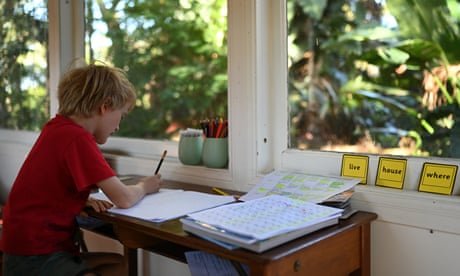- by foxnews
- 08 Apr 2025
Naplan shows gap widening between city students and those in regional and remote areas
Naplan shows gap widening between city students and those in regional and remote areas
- by theguardian
- 15 Dec 2021
- in news

The full 360-page report, released on Wednesday, follows high-level data in August which indicated that students in years 3, 5, 7 and 9 in 2021 continued to perform on par with students in 2019, despite lockdowns and periods of remote learning through 2020.
The Naplan tests were not conducted in 2020 due to nationwide lockdowns.
The 2021 tests were administered in May, before the Delta outbreak in Sydney that resulted in further months-long remote schooling periods in both New South Wales and Victoria.
But they urged caution on interpreting the data based on only two rounds of testing, saying patterns and changes were more likely to become apparent over many years.
Guardian Australia previously reported concerns from teachers that the compounded effects of two years of intermittent learning in some areas are only just beginning to become apparent, especially for younger cohorts (up to grade 2) that are not captured by the Naplan dataset.
David de Carvalho, chief executive of the Australian Curriculum, Assessment and Reporting Authority (Acara), which runs Naplan, said it was important to resist the temptation to draw conclusions from only two years of data.
Gaps between metropolitan schools and those in regional and remote areas were also growing, with city-based students increasingly outperforming regional students. The gaps in numeracy and reading have gradually widened since 2016 for most year levels, with metropolitan students just under six months ahead of their regional counterparts in grades 3 and 5, and almost a full year ahead in grades 7 and 9.
The gap is even wider between metropolitan and remote students, with those in remote areas behind by an equivalent of approximately three years of schooling, the analysis showed.
The gap between Indigenous and non-Indigenous students has remained extremely wide since 2016, representing a difference equivalent to two full years of schooling.
But the long-term analysis also suggested that educational disadvantage can be multigenerational, with children whose parents did not complete year 12 comprising the main cohort of those falling behind the national average.
Approximately 70% of the 5.86m Naplan tests were taken online this year as the program transitions to a completely digital delivery, which will take effect next year.
Acara reiterated that Naplan tests are only one aspect of educational assessment and do not replace the extensive, ongoing assessments made by teachers about individual student performance.
- by foxnews
- descember 09, 2016
Ancient settlement reveals remains of 1,800-year-old dog, baffling experts: 'Preserved quite well'
Archaeologists have recently unearthed the remarkably well-preserved remains of a dog from ancient Rome, shedding light on the widespread practice of ritual sacrifice in antiquity.
read more


